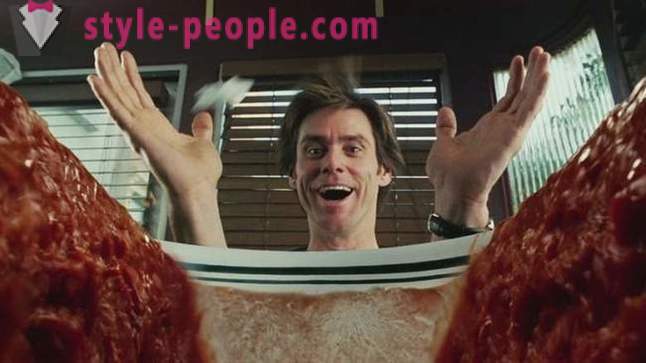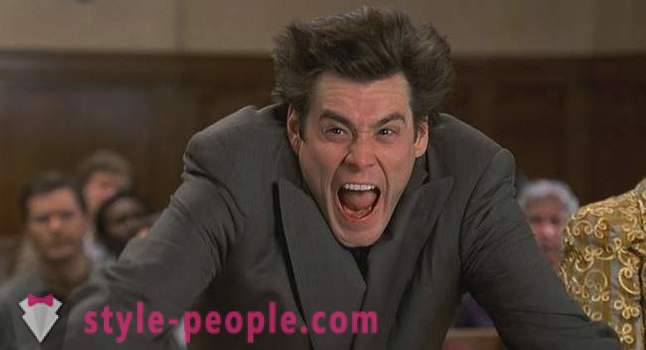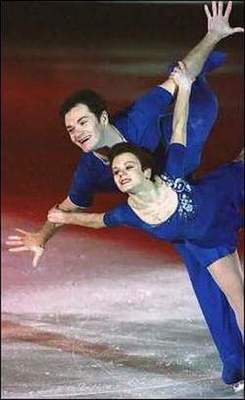What prevents us to be objective

11 errors of human thought
Cognitive distortions - are errors in human thinking, a kind of logical traps. In certain situations, we tend to act according to the established patterns, even when it seems to us, that we proceed from common sense.
We suggest you avoid these 11 common pitfalls that rob us of objectivity.
The illusion of control

People tend to overestimate their influence on events in the successful outcome of which they are interested. This phenomenon was discovered in 1975 by American psychologist Ellen Langer in the course of experiments with lottery tickets. Participants were divided into two groups: the first group of people can choose their own lottery tickets and the members of the second group were given their non-selection. Two days before the draw of the experimenters offered to participants in both groups exchange their ticket for another - in a new lottery with more chances to win.
Obviously, the proposal has been beneficial, but those members, who are themselves elected tickets in no hurry to part with them - as if their ticket is a personal choice would affect the probability of winning.
zero risk preference

Imagine that you have a choice: to reduce the small risk to the full ground or greatly reduce a high risk. For example, to reduce to zero the complete crash or drastically reduce the number of automobile accidents. What would you choose?
Based on these statistics, it would be better to choose the second option: the mortality rate of aircraft accidents is much lower than the death rate from road accidents - with the result that such a choice will save more lives. Yet studies show that most people choose the first option: zero risk at least in some area looks reassuringly, even if your chances of becoming a victim of a plane crash are negligible.
selective perception

Let's say you do not trust GM. If this topic is of great concern to you, you probably read news articles about genetically modified organisms. While reading, you are more and more convinced that right: the danger is obvious. But here's the catch - it is likely that you are paying much more attention to the news, reinforcing your point of view, the arguments in favor of GMOs. So, you lose objectivity. This tendency of people to pay attention to the information that is consistent with their expectations, and ignore the rest, called selective perception.
Player Error

gambler's fallacy often lies in wait for gamblers. Many of them are trying to find the relationship between the probability of the desired outcome of a random event and its previous outcomes. The simplest example - tossing a coin: if 9 consecutive falls "tails," most people will be the next time to put on the "eagle" as if too frequent loss of "tails" increases the probability of loss. But this is not the case: in fact, the odds are the same - 50/50.
survivorship bias

This logical trap discovered during the Second World War, but it can fall into and in peacetime. During the war, the US military leadership has decided to reduce the number of casualties among the bombers and a flat order: as a result of the fighting to find out, it is necessary to strengthen the protection to which parts of the aircraft. We began studying the planes returned and found a lot of holes in the wings and tail - these parts, and it was decided to strengthen. At first glance it looked quite logical - but fortunately, the military came to the aid of the supervisory statistician Abraham Wald. He explained to them that they almost made a fatal mistake. After all, in fact, holes in the aircraft returned carrying information on their strong positions, not weak. Aircraft, "wounded" in other locations - e.g., an engine or fuel tank - not just returned from the field. On the principle of "survivors-wounded" worth thinking now, when we're going to jump to conclusions on the basis of asymmetric information for any two groups.
The illusion of transparency

You are trapped in a situation where the lie is necessary. But how hard to do it - you think that you see through any involuntary movement will give your insincerity. Familiar? This illusion of transparency - the tendency for people to overestimate the ability of others to understand their true motives and emotions.
In 1998, psychologists conducted an experiment with students at Cornell University. Individual students read the questions from the cards and responding to them, to tell the truth or lie, depending on the instructions on the card. Audiences were asked to determine when speakers are lying, and the speakers were asked to rate their chances other circle around your finger. Half liars suggested that they will bite - but in fact only a quarter of the students exposed. This means that the liars greatly overestimated the sagacity of their audience.
Why is this happening? Most likely, because we do know too much about yourself. And so I think that our knowledge and obvious to the outside observer. However, the illusion of transparency works in the opposite direction: we overestimate and their ability to recognize other people's lies.
The effect Barnum

A common situation: a person reads and stumbles upon a horoscope. Of course, he does not believe in all these pseudo-science, but decides to read the horoscope purely for fun. But the strange thing: his description of a suitable mark accurately coincides with his own self.
These things happen even to the skeptics: psychologists call this phenomenon Barnum effect - after the American showman and a clever manipulator of the XIX century Finneasa Barnum. Most people tend to take a rather general and vague description as accurate descriptions of their personality. And, of course, the more positive description, the more matches. This effect and are astrologers and fortune-tellers.
The effect of the self-fulfilling prophecy

Yet another cognitive bias, which works on the arm soothsayers. Its essence is that does not reflect the truth of prophecy that sounds convincing, can cause people to spontaneously take steps towards its implementation. And in the end the prophecy, whose objective was not so much of a chance to come true, suddenly appears to be true.
The classic version of this prophecy is described in the novel by Alexander Green's "Scarlet Sails". Aigle inventor predicts little Assol that when she grows up, her prince would come on a ship with scarlet sails. Assol fervently believes in the prediction, and it became known throughout the city. And then the girl fell in love with Captain Gray learns about the prophecy and decides to realize the dream Assol. And in the end Aigle is right, though a happy ending in the history provided is not fabulous mechanisms.
The fundamental attribution error

We tend to explain the behavior of other people, their personal qualities and their actions - objective circumstances, especially when it comes to some blunders. For example, the other person is late for sure because of its punctuality and its delay is always possible to explain a broken alarm clock or stoppers. And it's not just about the official justifications, but also about the inner vision of the situation - and this attitude prevents us to take responsibility for their actions. So those who want to work on them, it is worth remembering the existence of the fundamental attribution error.
The effect of moral confidence

The well-known journalist for his liberal views caught on homophobia, the priest took a bribe, and Senator ratuyuschego for family values, photographed at a strip bar. In these seemingly of extraordinary cases, has a sad regularity - it is called the effect of moral confidence. If a person develops a strong reputation of "righteous", at some point he may have the illusion that he actually sinless. And if he was so good, that little weakness will not change anything.
Cascade available information

Cognitive distortions that are required to successfully all ideologies of the world: the collective belief in the idea becomes much more convincing if this idea is constantly repeated in the public discourse. We are often faced with it in conversations with my grandmother, many pensioners believe the veracity of all, what is said often enough on television. But a new generation is likely to feel the effect through facebook.













































